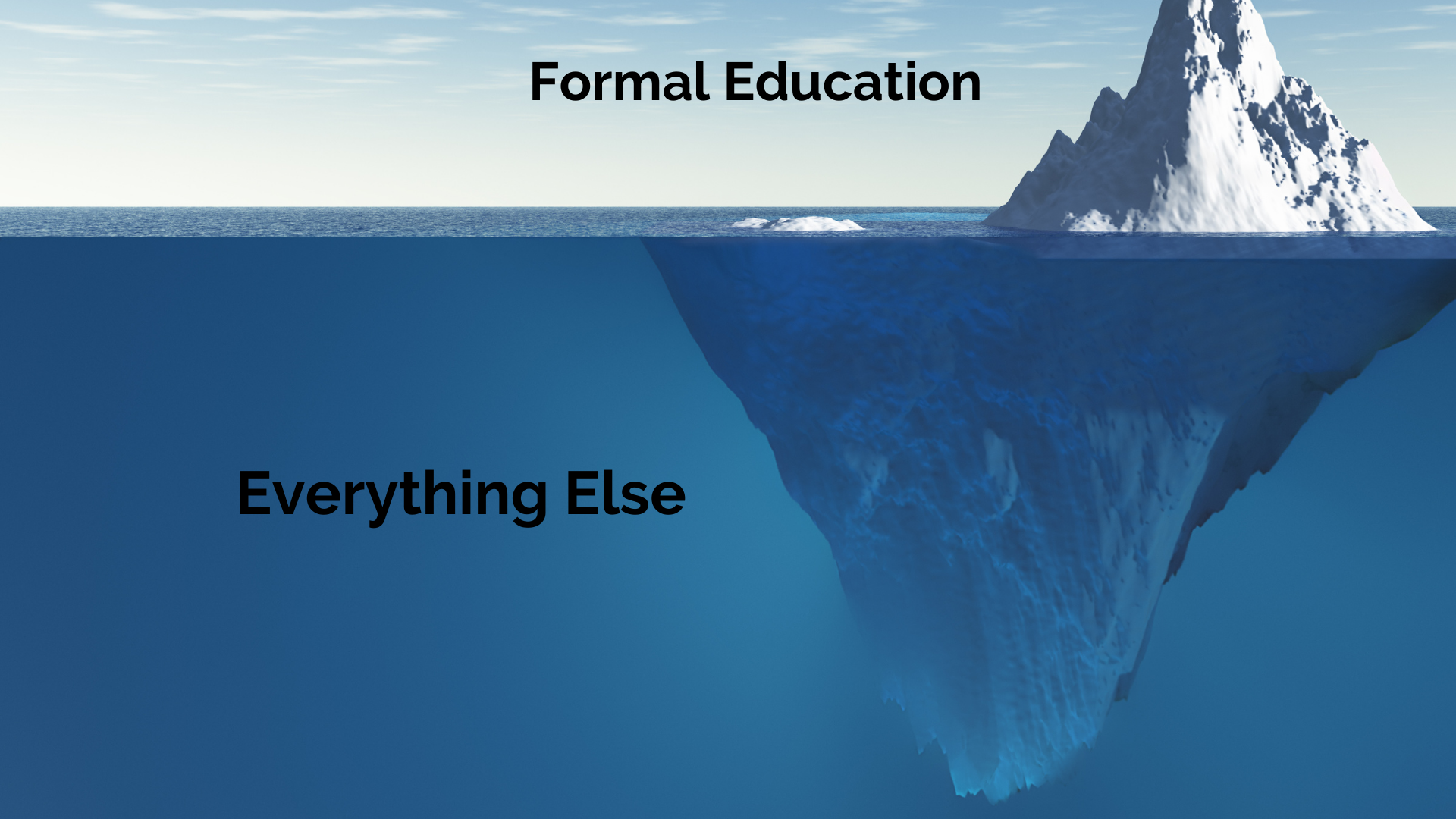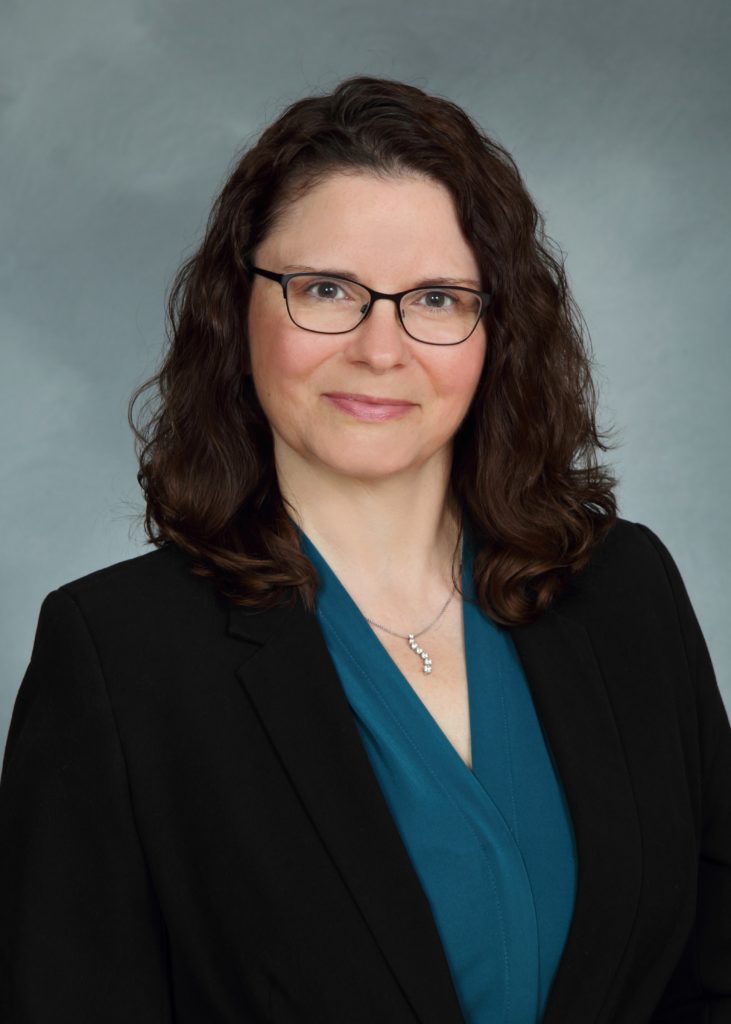Don’t Settle for the Tip of the Iceberg
Anyone who has spent any time on social media has seen memes depicting an iceberg. The top part of the iceberg illustrates what people see, while the portion below the waterline depicts what people don’t see. That portion is not only much deeper than the portion above the surface, it is often much wider as well. If such a meme depicted a paralegal’s education, the visible tip of the iceberg would represent the formal, foundational education and essential working skills of that paralegal.
These are the qualifications that clients, attorneys, and other professionals see in day-to-day interactions with the paralegal. What, then, would the underwater chunk of ice delineate?
And what would a paralegal or legal assistant do if they wanted to delve into that deeper and wider realm of ice?
Most paralegals have at least an associate’s degree or a certificate in paralegal studies.[1] Many possess a bachelor’s or master’s degree. In addition, certified paralegals and paralegals who work in certain states are required to continually update their legal education.

Many paralegals feel that obtaining and maintaining their education is not enough. They wish to dive into the depths in order to broaden their legal education, deepen their understanding, diversify their skills, and learn new areas of the law. Fortunately for these paralegals and legal assistants, there are numerous ways in which to do this.
Learn what you can do if you’re looking to start your paralegal career without a paralegal certificate.
1. Maximize Continuing Legal Education
Although the stated purpose of continuing legal education (“CLE”) is to update and maintain a paralegal’s legal education, CLE can also be used for advanced training. Attending webinars or paralegal courses presented by paralegal associations, bar associations, and other providers on subjects outside a paralegal’s field of law is a great way to broaden their legal understanding. For instance, commercial litigation paralegals can benefit from CLEs explaining the methods of determining the appropriate type of business organization or drafting contracts. Conversely, corporate paralegals can increase their understanding of properly filing Uniform Commercial Code financing statements by attending CLEs analyzing litigation related to invalid liens.
2. Explore Other Formal Educational Opportunities
Many professional associations outside the legal field provide continuing education sessions in their areas of expertise. Attending webinars or seminars presented by accountants, insurance brokers, surveyors, information technology specialists, and other professionals can allow a paralegal or legal assistant to develop a deeper insight into financial, business, or scientific factors relating to their legal specialty. For example, paralegals concentrating in construction law may benefit from continuing education seminars presented by engineers regarding trends in the construction industry.
Vendors such as business service providers and title insurance companies often provide free or nominally priced webinars, making these courses a great choice for paralegals who desire to expand their education into disciplines outside their usual area of law.
Community colleges offer non-credit courses in such areas as business formation, project management, finance, real estate licensure, and estate planning. Although these are geared to the general public, they can provide a helpful introduction to, or refresher on, such topics for paralegals who specialize in other areas.
LinkedIn and similar apps provide a wide variety of online training and certificate programs.
Find out everything there is to know about becoming a litigation paralegal.
Litigation Paralegal Boot Camp
Are you tired of being the Panic Mode Paralegal who spends your days playing whack-a-mole with last-minute rush projects because you’re waiting for someone to show you what it takes to be great litigation paralegal?
This is the only program of its kind that provides litigation paralegals with all of the tools to master litigation cases from the complaint through the trial, and everything in between.
You will be the Confident Case Strategist faster than you ever imagined possible.

3. See the Bigger Picture
Reading books, visiting museums, watching documentaries or historical films, and listening to podcasts that dig deeply into a subject can provide paralegals with a greater understanding of their field of law. These activities can help paralegals and legal assistants comprehend not just how things are done, but also why they are done. For instance, the book “The Immortal Life of Henrietta Lacks,” by Rebecca Skloot, demonstrates the need for and purpose of disclosure, consent, and other ethical considerations in healthcare law.
Museum exhibits and podcasts personalize significant court cases or legal developments such as the evolution of labor or environmental laws. Paralegals who subscribe to trade journals in fields related to their area of expertise can gain a more thorough insight into the business conducted by their firm’s clients. An example would be a paralegal working in maritime law who subscribes to The Journal of Shipping and Trade.
Even general interest magazines such as Bloomberg Businessweek or Time Magazine can alert paralegals to national and global news events and trends that may impact their employer, clients, or legal specialty.
Paralegals and legal assistants can use all of these sources to deepen their understanding of the relationships between a particular area of law and the economy, industry, society, and politics as a whole.
4. Volunteer
Becoming an active member of a paralegal or other professional association can be a valuable way to broaden a paralegal’s legal skills and knowledge. For example, serving as a secretary or treasurer of a paralegal association can increase a paralegal’s grasp of corporate procedure and financial reporting.
Volunteering at a legal aid agency or other nonprofit can provide paralegals with the opportunity to practice skills they may not be able to in their work. Participating in the work performed by professional or charitable organizations can increase paralegals’ knowledge of the substantive area of law addressed by those groups.
Working on pro bono cases or projects with colleagues can introduce paralegals to areas of the law outside their usual legal discipline. For instance, transactional paralegals may increase their knowledge of litigation by volunteering at a nonprofit organization that assists low-income persons facing eviction.
Additionally, becoming active in any of these types of associations or charities can provide paralegals with an opportunity to participate in the following activities.
5. Write Articles and Blog Posts
Although it may sound counterintuitive, teaching others is a great way to learn new information or skills or to strengthen one’s understanding of a topic. Many paralegal associations publish journals and newsletters for fellow paralegals. Paralegal blogs and magazines provide additional educational resources for paralegals.
The publishers of these media often seek articles, columns, and blog posts from paralegals on substantive or procedural topics.
Writing an article about a familiar legal issue is a wonderful way to practice one’s research and communication skills and to develop a deeper understanding of that particular topic. Composing a post for a blog or social media account regarding a favorite procedure, tip, or shortcut can be an invaluable way to solidify one’s understanding of the subject.
In the words attributed to Aristotle, [t]hose who know, do. Those who understand, teach.”
6. Present Webinars, Seminars, and In-House Training
These endeavors incorporate all of the procedures required to write articles and blog posts but add the challenge of public speaking. Many surveys report that fear of public speaking is one of the top phobias for numerous people. Conquering this fear has many benefits for paralegals. Those who have the confidence and skills to present webinars, conduct in-house training, or present a topic at a meeting have a substantial advantage over those who do not.
Additionally, the practice of public speaking encourages the speaker to become thoroughly familiar with the topic upon which they are presenting. Interacting with audience members bolsters a paralegals’ ability to actively listen to other parties, think on their feet, and refocus after having been distracted. All of these skills are essential to effective communication.

Paralegals can find many opportunities to increase their public speaking ability without committing to presenting a lengthy seminar to a large audience. Paralegal association meetings and other professional organization gatherings furnish such opportunities. Paralegals can preside over the proceedings, introduce guest speakers, or deliver committee or officer reports.
Training new paralegals, legal assistants, or other staff members, educating junior associates on how to utilize paralegals, or making presentations at practice group or departmental meetings are additional ways in which paralegals can flex their public speaking muscles and deepen their substantive knowledge.
Groups such as Toastmasters provide the chance to practice their public speaking skills regularly in an informative, friendly environment.
Benefits of Diving Below the Waterline
Although paralegals and legal assistants, especially those working at law firms, have limited opportunities to be promoted to positions with new titles, they have an almost endless capacity to grow their careers. By undertaking any of the steps outlined above, paralegals can broaden and deepen their skills and understanding of the legal field. They can increase their appreciation of the role their chosen area of law plays in their community, the economy, and society at large.
Perhaps more importantly, these endeavors can inspire paralegals to excel in their careers, become leaders in their field, and find greater meaning in their work.
[1] U.S. Bureau of Labor Statistics. https://www.bls.gov/ooh/legal/paralegals-and-legal-assistants.htm#tab-1

Meet the Author
Eva M. Merrell, MBA, ACP, has been a real estate and finance paralegal for over 20 years. She works remotely for a Chicago law firm from her home in St. Louis. She serves on the Continuing Education Council for the National Association of Legal Assistants (NALA) and presents seminars for NALA and other paralegal and professional associations. When not working, Eva can usually be found spending time with her family and pets, hiking, or practicing yoga.

























